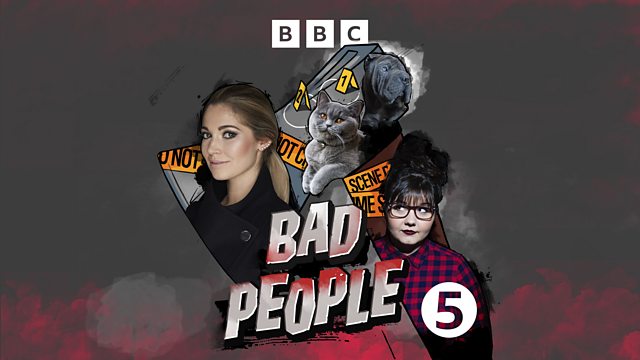16. The Pearl Earring: No body, no parole?
Should a murderer have to stay in prison if they don't reveal where a body is? Helen McCourt's family campaigned for a change in the law following her murder in 1988.
If a killer refuses to reveal where they鈥檝e hidden a body 鈥� should they have to stay in prison?
Helen McCourt鈥檚 family campaigned for the UK to adopt an Australian-style 鈥渘o body, no parole鈥� law 鈥� but would it be adopted in time to stop the release of her killer?
In 1989 pub landlord Ian Simms was one of the first people in the UK to be convicted on DNA evidence without the victim's body having been found. Sentenced to at least 16 years in jail for Helen's murder, Simms still claims he's innocent.
The jury were convinced by forensic evidence such as traces of Helen's blood which were found in Simms' flat and car. An opal and pearl earring identical to one Helen was wearing when she went missing was also found in the boot of his car.
Although "no body, no parole" might act as a deterrent to some offenders who choose not to reveal where their victim's body is, we also hear hear about concerns that it might interfere with the goals of rehabilitating offenders and reducing re-offending. The 750,000 signatories to a petition supporting Helen's Law believe that the needs of families whose pain continues as long as they have no body to bury should be prioritised.
Helen's mum Marie McCourt hopes that one day she will be able to take flowers to Helen's grave.
Presenters: Dr. Julia Shaw and Sofie Hagen
Producers: Paula McGrath and Caroline Steel
Assistant Producer: Simona Rata
Music: Matt Chandler
Series Editor: Rami Tzabar
Commissioning Producer: Hannah Rose
Commissioning Executive: Dylan Haskins
Commissioning Editor: Jason Phipps
Bad People is a 大象传媒 Audio Science Production for 大象传媒 Sounds
#BadPeople_大象传媒
Podcast
-
![]()
Bad People
Dr Julia Shaw and comedian Sofie Hagen dissect criminal cases and tackle ethical dilemmas


